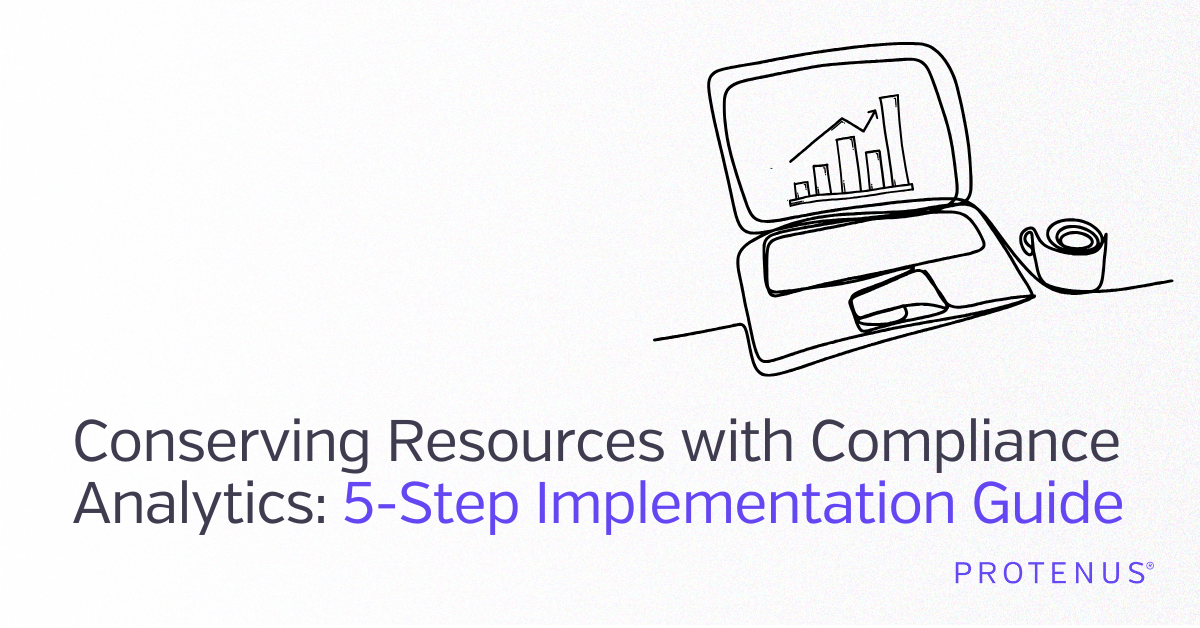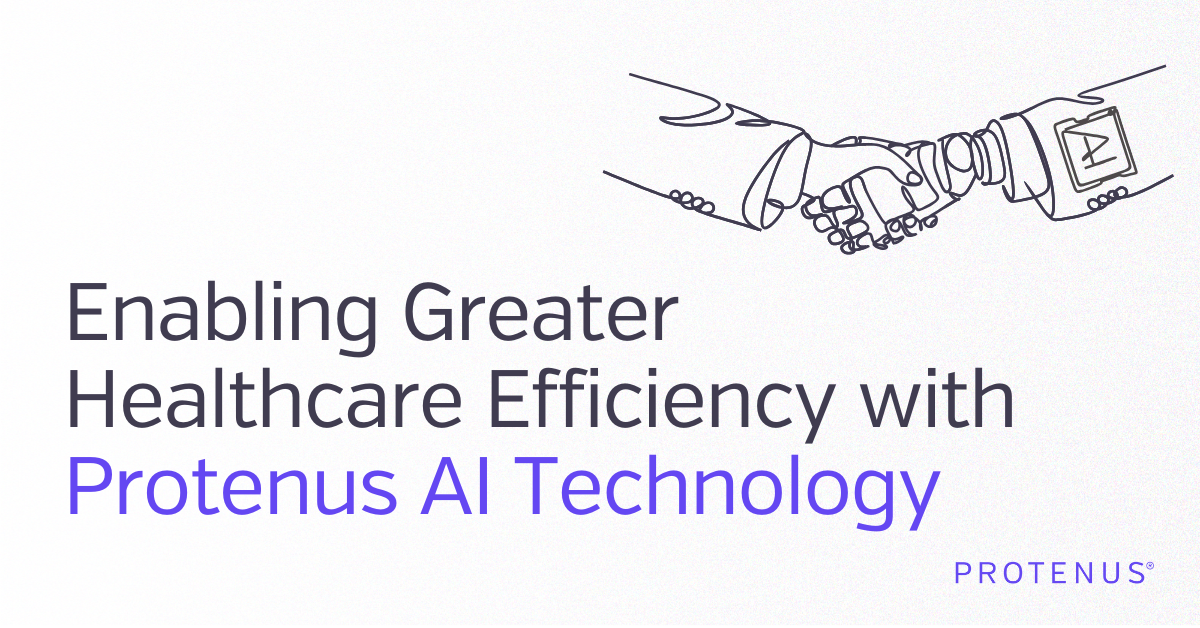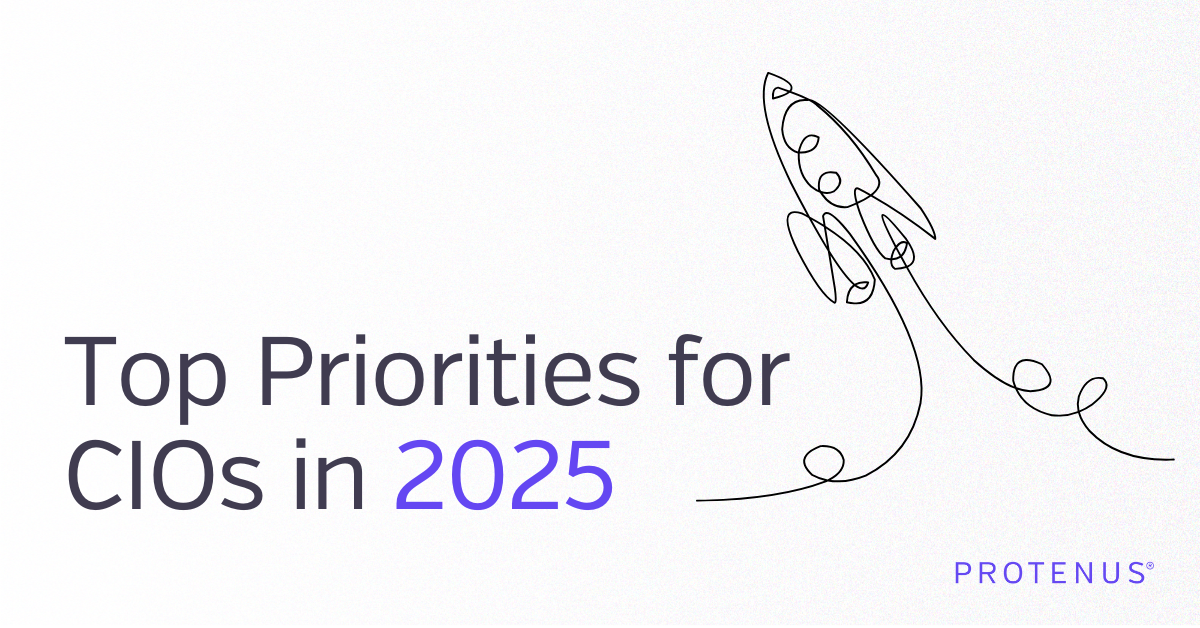Share this

Why One Health System Traded Its Legacy Tool For Advanced Privacy Monitoring
by Protenus on September 15, 2021
Protecting patient privacy is not a simple task. This is especially true at sprawling healthcare organizations with growing case volumes, unrelenting resource constraints, and countless competing priorities, like one Multi-Hospital Integrated Health System in the Southwest.
Charged with ensuring adherence to various privacy laws, rules, and regulations across more than half a dozen hospitals, a multispecialty medical group with 900+ providers, and a statewide health insurance plan, the compliance department at this system realized its legacy tool wasn't providing the complete coverage needed. Yet, this tool required additional hires to work the complicated reports.
Click here to download the Case Study: "Large Integrated Health System Achieves Complete Patient Privacy Monitoring Coverage Across Multiple Hospitals."
Due to the time- and staff-intensive nature of the tool, the system's compliance department closed out 2019 with a total of 71 cases resolved — potentially only a fraction of the privacy infractions occurring throughout the large organization. Having a significant amount of improper system accesses possibly being missed was putting the system at elevated risk for sanctions, fines, and reputational damage. Even more importantly, patients' sensitive health information was at risk.
It was time to switch to a better solution.
Patient privacy was a challenge that human expertise alone could not solve; it required a combination of human and artificial intelligence. The system's compliance experts needed a solution that would enable them to do more with less.
Specifically, they were in the market for an advanced tool that would provide three critical functions:
1. Comprehensively monitor 100% of auditable events
2. Identify and prioritize potential risks with exceptional accuracy
3. Automatically surface events to end-users with all relevant information
These capabilities were exactly what the system's compliance department found in Protenus Privacy on Autopilot™, a solution on the Protenus healthcare compliance analytics platform.
After thoughtful evaluation, the health system partnered with Protenus.
Implementation of Protenus Privacy on Autopilot™ quickly delivered a drastic reduction in auditing burden for the compliance department. Within a year, the Protenus platform enabled the 2-person team to achieve a 6-day case resolution time, and ultimately, to increase its case resolution volume from 71 cases in 2019 to an impressive 432 cases in 2020.
"Protenus allows us to control how many cases we get, so if we’re down a staff member, we are able to adjust accordingly while still reviewing the most important cases," said the organization's privacy officer. "The tool is both user-friendly and incredibly effective at mitigating risks to our organization."
Ultimately, because the system's existing compliance experts were empowered to review an unlimited number of cases, the number of additional hires required to achieve these results was 0 — a particularly huge relief amid widespread staffing challenges.
With Protenus Privacy on Autopilot™, the large, integrated health system not only benefits from machine-learning technology that continuously refines how appropriate system accesses are distinguished from inappropriate ones, but also from artificial intelligence that is highly accurate, meaning teams do not need to duplicate work by comparing the Protenus output to manual reviews. Further built out with easy exports for reporting to various stakeholders, the Protenus platform has proven to be a game-changing solution.
At the end of the day, Protenus Privacy on Autopilot™ allows the compliance department of this large health system (and many, many other teams) to rest assured that their monitoring capabilities are efficient, accurate, proactive, and scalable.
Interested in learning more about what your health system can achieve by leveraging Protenus? Download our case study.
Share this
- December 1, 2024 (3)
- November 1, 2024 (1)
- October 1, 2024 (2)
- September 1, 2024 (1)
- August 1, 2024 (1)
- July 1, 2024 (1)
- June 1, 2024 (1)
- May 1, 2024 (1)
- March 1, 2024 (2)
- February 1, 2024 (3)
- January 1, 2024 (1)
- December 1, 2023 (1)
- November 1, 2023 (3)
- October 1, 2023 (3)
- September 1, 2023 (1)
- August 1, 2023 (1)
- July 1, 2023 (2)
- April 1, 2023 (1)
- March 1, 2023 (1)
- February 1, 2023 (1)
- December 1, 2022 (3)
- November 1, 2022 (3)
- October 1, 2022 (1)
- September 1, 2022 (1)
- August 1, 2022 (2)
- June 1, 2022 (4)
- May 1, 2022 (5)
- April 1, 2022 (1)
- March 1, 2022 (4)
- February 1, 2022 (3)
- November 1, 2021 (2)
- October 1, 2021 (3)
- September 1, 2021 (3)
- August 1, 2021 (3)
- July 1, 2021 (4)
- June 1, 2021 (2)
- May 1, 2021 (2)
- April 1, 2021 (2)
- March 1, 2021 (5)
- February 1, 2021 (1)
- January 1, 2021 (1)
- December 1, 2020 (1)
- November 1, 2020 (2)
- October 1, 2020 (2)
- September 1, 2020 (3)
- August 1, 2020 (2)
- July 1, 2020 (2)
- June 1, 2020 (6)
- May 1, 2020 (3)
- April 1, 2020 (4)
- March 1, 2020 (2)
- February 1, 2020 (4)
- January 1, 2020 (2)
- December 1, 2019 (2)
- November 1, 2019 (1)
- October 1, 2019 (1)
- September 1, 2019 (1)
- August 1, 2019 (1)
- June 1, 2019 (1)
- April 1, 2019 (1)
- February 1, 2019 (1)
- January 1, 2019 (1)
- December 1, 2018 (2)
- November 1, 2018 (2)
- October 1, 2018 (2)
- September 1, 2018 (3)
- August 1, 2018 (1)
- July 1, 2018 (2)
- June 1, 2018 (2)
- May 1, 2018 (1)
- April 1, 2018 (1)
- March 1, 2018 (2)
- February 1, 2018 (6)
- January 1, 2018 (2)
- September 1, 2017 (2)
- August 1, 2017 (2)
- June 1, 2017 (2)
- May 1, 2017 (1)
- April 1, 2017 (1)
- March 1, 2017 (2)
- February 1, 2017 (5)
- January 1, 2017 (2)
- December 1, 2016 (3)
- November 1, 2016 (5)
- October 1, 2016 (4)
- September 1, 2016 (8)
- August 1, 2016 (4)
- July 1, 2016 (4)
Subscribe by email
You May Also Like

Conserving Resources with Compliance Analytics: A 5-Step Implementation Guide

Enabling Greater Healthcare Efficiency with Protenus AI Technology

.png?width=1000&height=140&name=Bluesight%20%2B%20Protenus%20Logo%20%20(1).png)
